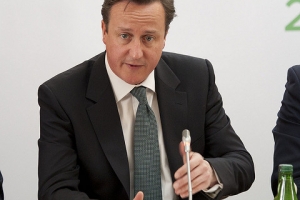Support migrant centric journalism today and donate

The UK General Election is taking place today. We take this opportunity to look at the immigration policies of the main political parties as stated in their manifestos, and to speculate about the election outcome.
UK Party Policies on Immigration
The Conservatives say they aim to keep net migration down to the tens of thousands and make it more difficult for EU immigrants to claim social or housing benefits.
Labour pledge to employ 1,000 new border staff, to impose a two-year wait on EU immigrants claiming unemployment benefits and cap the number of non-EU migrant workers.
The Liberal Democrats have pledged to end indefinite detention of immigrants at detention centres, to bring back entry and exit border checks and to make applicants with poor English attend language courses before they can claim unemployment benefits.
The SNP (Scottish National Party) have stated they will only support immigration policies that are beneficial to Scotland's economy; they would also review the detention centre regime with a view to finding a more efficient and fair system.
The Green Party would seek to remove immigration restrictions on foreign students, provide asylum seekers with more rights, and abolish family migration rules that require immigrants to be earning a minimum income before their spouse can join them in the UK.
UKIP have said they will cap immigration to 50,000 people per year. They will also impose a five-year ban on all unskilled immigrants coming to the UK and impose a five-year wait period for all immigrants claiming benefits.
If Wales gains independence some time in the future Plaid Cymru would have their own Welsh Migration Service and seek skilled migrants to help alleviate labour shortages in Wales.
Hung Parliament Likely
The latest Ipsos Mori poll in England has suggested that the Conservatives will come out 1% ahead of Labour, with 36% and 35% of the votes respectively. Because of this, it is highly likely that there will be a hung Parliament as neither party will have a majority of seats by itself.
Although the Conservatives may have a slight margin over rivals Labour, it seems unlikely that current Prime Minister David Cameron will be able to form the majority government needed to take power. Parties such as the SNP, Greens and Plaid Cymru have openly declared they will not support a Conservative led coalition; it also seems likely that given the choice the Liberal Democrats would opt for a Labour-led government over serving another term with the Conservatives. UKIP have said they would support the Conservatives, but polls suggest that this will still not be enough to form a majority government.
The Ipsos Mori poll suggests the smaller political parties will have the following share of the vote: Liberal Democrats (8%), UKIP (11%), and Greens (5%).
The Future Government
It would appear that the most likely outcome would be a Labour led coalition with the support of the Liberal Democrats, SNP or Greens. Whilst Labour leader Ed Miliband has rejected the proposal of a Labour-SNP coalition, the SNP could hold the key to who takes power and have stated they will support a Labour government regardless.
The process of forming a coalition could go on until 18th May, at which point if Cameron has been unsuccessful in forming a coalition government he should resign and hand over to Miliband, but only if Miliband can provide evidence of having put together a majority government.
Sanwar Ali, Editor of workpermit.com has the following to say about the General Election
Whoever wins the General Election we would ask that they behave in a fair and just way when enforcing the immigration laws and in enforcing UK laws in general. We know of unacceptable behaviour at times both by the Home Office and a quasi non-Governmental organisation sponsored by the Home Office. There have even been extremely serious allegations of dishonesty. The new Government should put a stop to this.





















